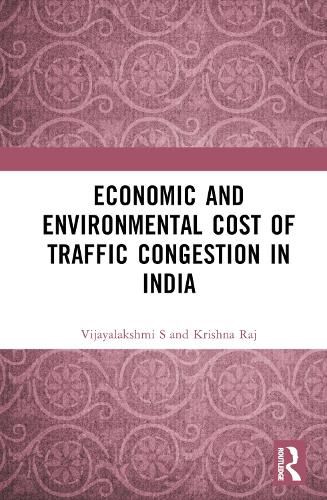Readings Newsletter
Become a Readings Member to make your shopping experience even easier.
Sign in or sign up for free!
You’re not far away from qualifying for FREE standard shipping within Australia
You’ve qualified for FREE standard shipping within Australia
The cart is loading…






This book explores one of the most prevailing problems of the contemporary urban world, i.e. traffic congestion and its economic, environmental, and health implications.
Generally viewed as an urban menace, the problem of traffic congestion has huge economic implications, which are often overlooked by urban planners. This book examines and quantifies the costs and adverse consequences and of traffic congestion, which include emissions, loss of productive hours, fuel wastage, and the adverse effects on the health of commuters, among others. It provides a comprehensive and scientific understanding of the underlying problems of traffic gridlocks by analyzing empirical evidence from Bengaluru, a city in South India. It also offers solutions and highlights innovative measures that draw from both economic and engineering perspectives to counter and reduce the tangible and intangible costs of traffic conjestion.
This book will be of interest to both academic and non-academic readers of economics, environmental economics and econometrics, transport economics, urban planning, transport geography, as well as planners and policy makers.
$9.00 standard shipping within Australia
FREE standard shipping within Australia for orders over $100.00
Express & International shipping calculated at checkout
This book explores one of the most prevailing problems of the contemporary urban world, i.e. traffic congestion and its economic, environmental, and health implications.
Generally viewed as an urban menace, the problem of traffic congestion has huge economic implications, which are often overlooked by urban planners. This book examines and quantifies the costs and adverse consequences and of traffic congestion, which include emissions, loss of productive hours, fuel wastage, and the adverse effects on the health of commuters, among others. It provides a comprehensive and scientific understanding of the underlying problems of traffic gridlocks by analyzing empirical evidence from Bengaluru, a city in South India. It also offers solutions and highlights innovative measures that draw from both economic and engineering perspectives to counter and reduce the tangible and intangible costs of traffic conjestion.
This book will be of interest to both academic and non-academic readers of economics, environmental economics and econometrics, transport economics, urban planning, transport geography, as well as planners and policy makers.